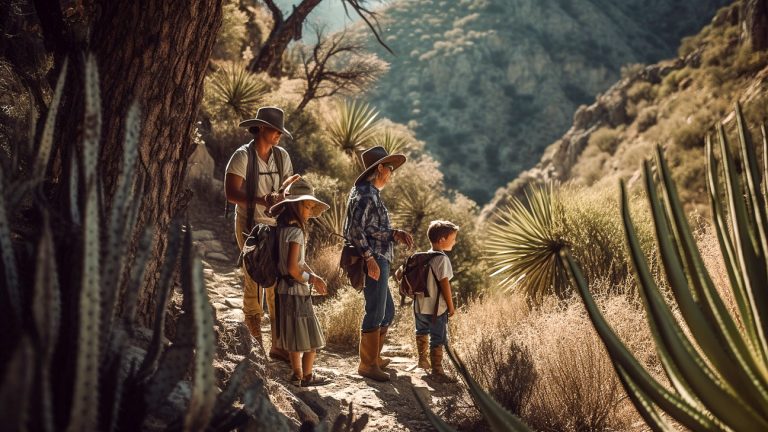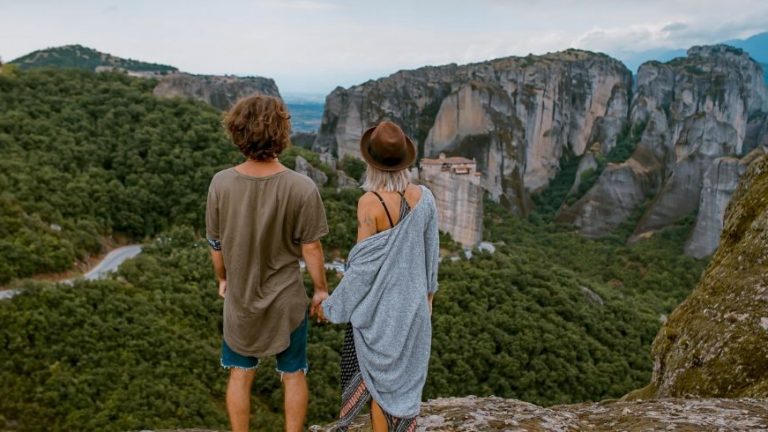As the call for environmental consciousness grows louder, a new wave of adventurers seeks eco-friendly experiences that not only thrill the senses but also nurture the delicate balance of nature. From renewable energy-powered escapades to immersive eco-tourism, this article explores sustainable adventures that allow participants to tread lightly on the planet while indulging in the awe-inspiring beauty of America’s wilderness.

- Solar-Powered Camping: Harnessing the Sun’s Energy Innovative advancements in solar technology have transformed camping into a sustainable escapade. Solar-powered camping allows outdoor enthusiasts to charge devices, cook meals, and illuminate campsites using clean, renewable energy. From the sun-drenched landscapes of Arizona to the lush forests of Oregon, solar-powered camping minimizes the ecological footprint while maximizing the experience of sleeping under the stars.
- Green Trail Running: Racing Through Eco-Conscious Routes Trail running enthusiasts can now lace up their shoes for eco-conscious adventures that leave minimal impact on natural ecosystems. Green trail running events prioritize sustainability by minimizing waste, utilizing eco-friendly race swag, and supporting conservation initiatives. Participants can sprint through the scenic trails of Colorado’s Rockies or the rugged terrains of Utah, knowing that their footsteps contribute to preserving the beauty of these wild landscapes.
- Eco-Lodges and Sustainable Accommodations Embracing eco-friendly accommodations is a crucial aspect of sustainable adventures. Eco-lodges, nestled in the heart of nature, provide a comfortable yet environmentally conscious base for explorations. From the Redwood forests of California to the Appalachian Mountains, these lodges incorporate green building practices, energy efficiency, and conservation initiatives, offering a harmonious blend of luxury and eco-conscious living.
- Waterfall Repelling: Eco-Thrills with a Conservation Twist For adrenaline junkies seeking eco-friendly thrills, waterfall rappelling combines adventure with conservation education. Participants can descend waterfalls in the lush landscapes of Hawaii or the rugged canyons of Oregon, all while learning about local ecosystems and the importance of preserving these fragile environments. Eco-friendly outfitters emphasize responsible practices to ensure minimal impact on the surrounding ecosystems.
- Low-Impact Backcountry Cooking: Sustainable Culinary Adventures Even in the backcountry, sustainable practices can be woven into the fabric of adventure, especially when it comes to cooking. Low-impact backcountry cooking involves using compact, efficient stoves powered by eco-friendly fuel sources. Exploring the backcountry of Montana or the wilds of Alaska, adventurers can savor delicious meals prepared with minimal environmental impact, leaving nature’s kitchen as pristine as they found it.
- Whale Watching Conservation Tours: A Sea of Ethical Adventure Whale watching takes on a new dimension when coupled with conservation awareness. Ethical whale watching tours, such as those in the waters off Massachusetts or the coast of Washington, prioritize responsible wildlife viewing practices. Participants not only witness the majesty of marine life but also contribute to ongoing research and conservation efforts, ensuring the welfare of these magnificent creatures.
Conclusion: Sustainably soaring through America’s wilderness is not just an adventure; it’s a commitment to preserving the planet for future generations. From harnessing solar power to embracing eco-friendly accommodations and participating in conservation-focused activities, adventurers can revel in the thrill of the wild while actively contributing to the protection of nature. As sustainable adventures gain momentum, they become a beacon for a new era of responsible exploration, where the joy of discovery harmonizes with the imperative of environmental stewardship.



